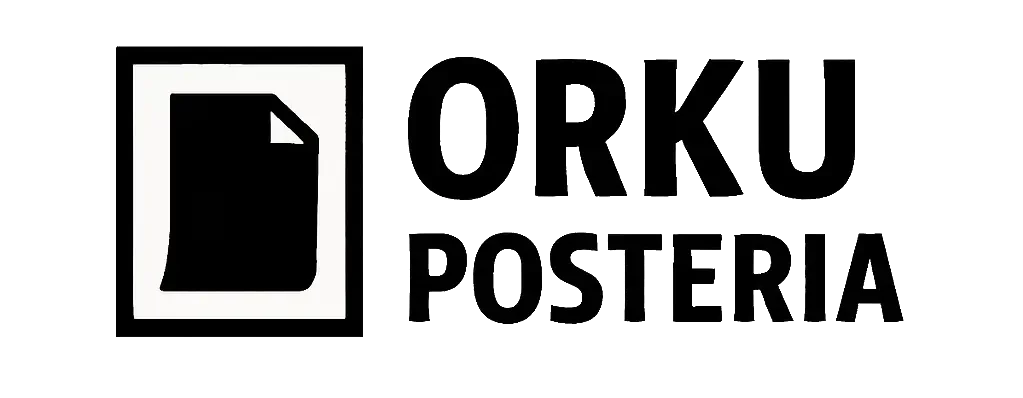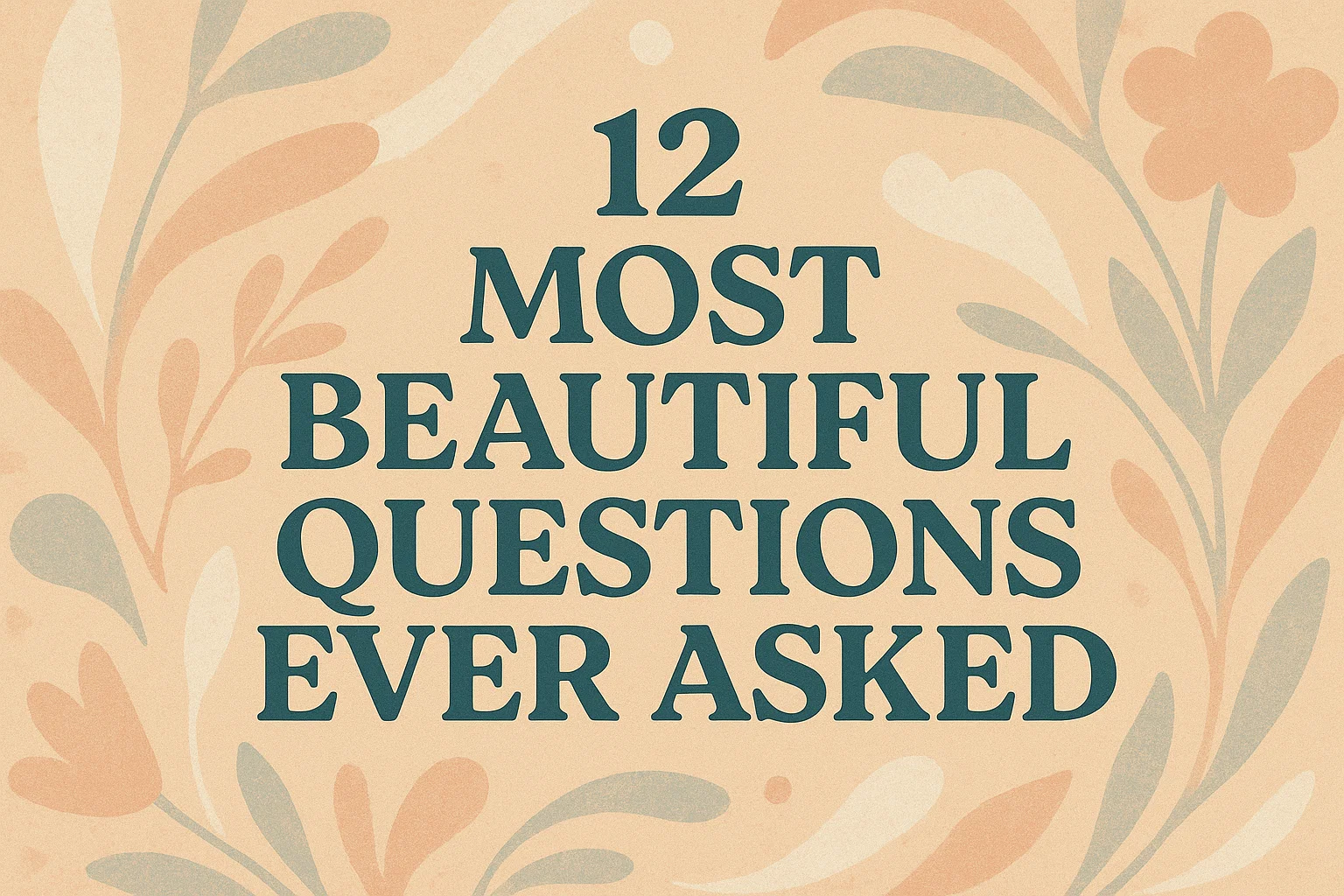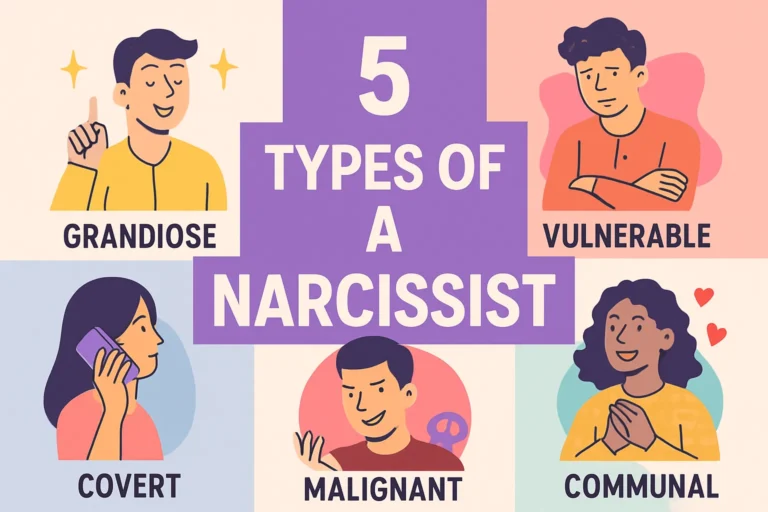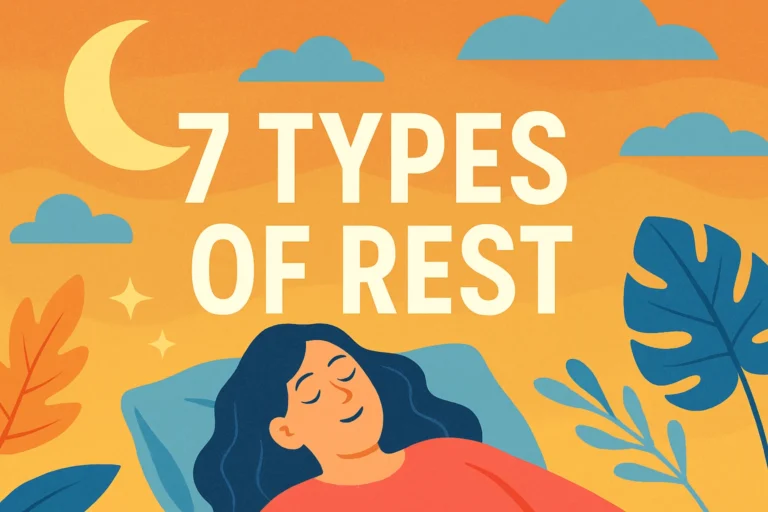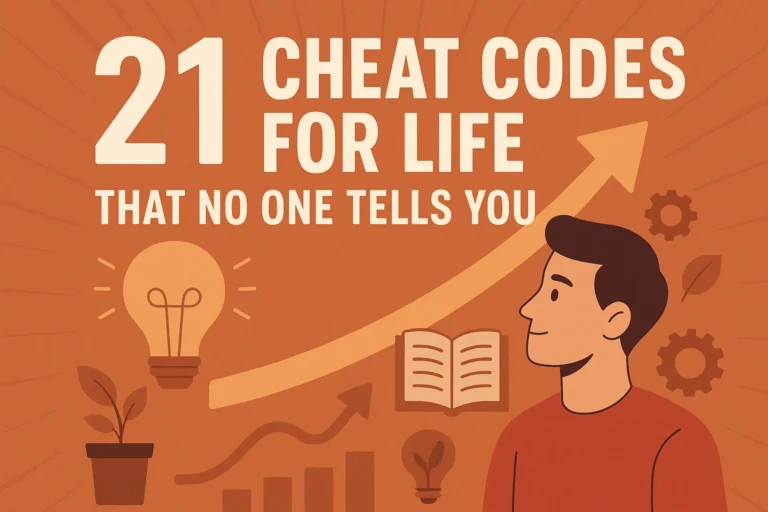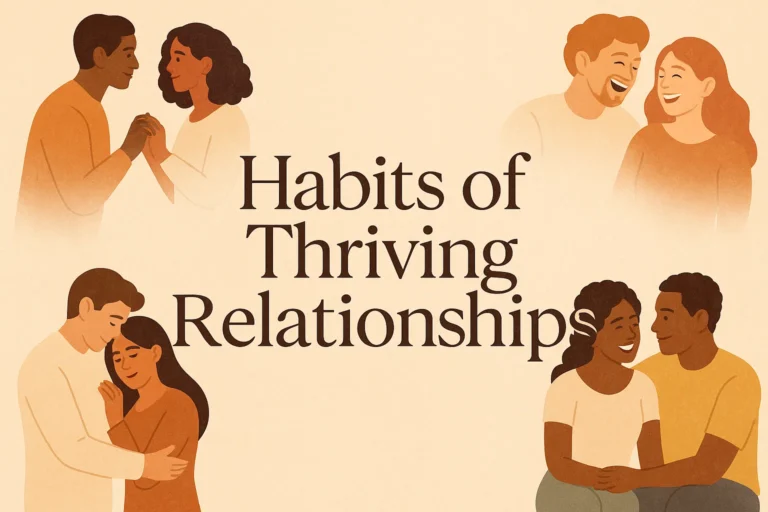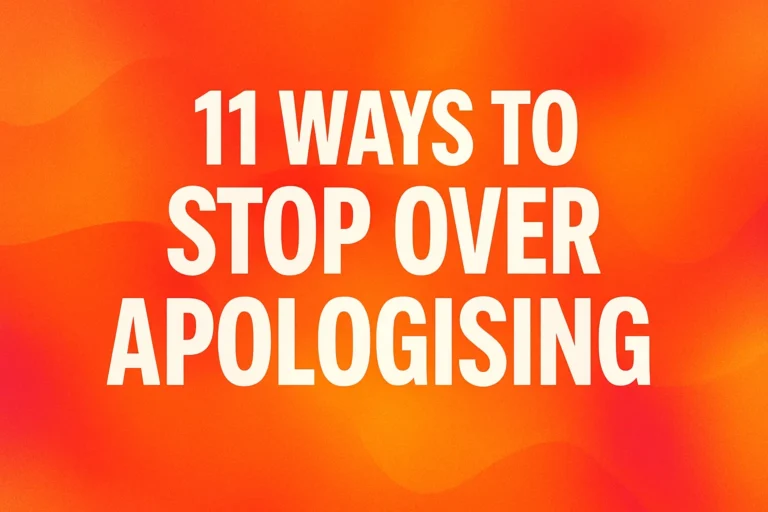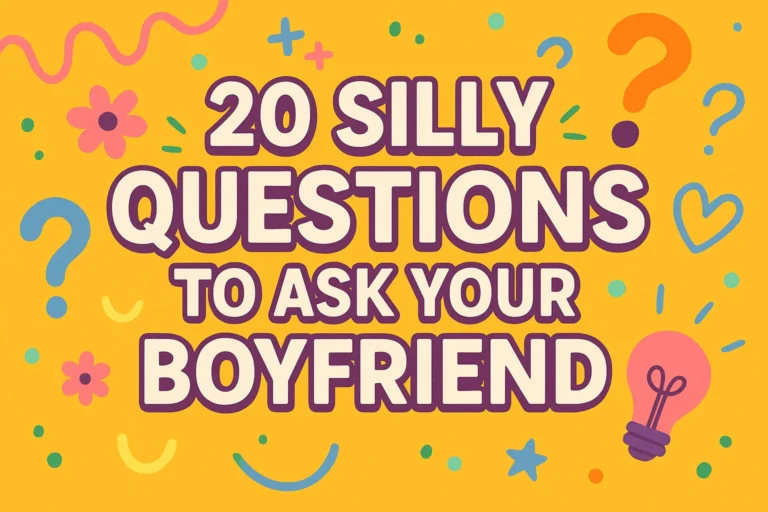12 Most Beautiful Questions Ever Asked to Boost Your Psychology Skills and Curiosity
Alright, let’s get real for a second. How many times have you scrolled through your day on autopilot, just checking boxes and reacting to notifications? You’re getting stuff done, sure, but it can feel a bit… hollow. Like you’re a character in a movie, not the director.
I’ve been there. It’s why I became obsessed not just with answers, but with the questions themselves. Not the boring ones like “What’s for dinner?” (though, important), but the big, beautiful, mind-bending ones that crack your brain open and rewire your thinking.
That’s what we’re diving into today. Forget dry textbooks. The real magic of psychology isn’t in memorizing theories; it’s in learning to ask better questions. These questions are like mental Swiss Army knives. They boost your empathy, sharpen your curiosity, and honestly, make conversations a thousand times more interesting.
Ready to upgrade your mental software? Let’s explore the 12 most beautiful questions ever asked.
What Story Are You Telling Yourself?
We all have a constant narrator in our heads, commenting on everything. “That person didn’t text back because I annoyed them.” “My boss gave me that look because my work was bad.”
But here’s the kicker: that narrator is often a terrible journalist. It reports assumptions as facts. This question forces you to stop and audit that internal news feed. Is the story you’re telling true? Or is it just one interpretation? Maybe that person is just busy. Maybe your boss had a bad burrito for lunch.
Asking this question is the first step to taking control of your emotions instead of letting your knee-jerk stories control you.
If I Weren’t Afraid, What Would I Do?
Fear is a fantastic bodyguard but a terrible life coach. It’s designed to keep us safe, not happy. We often mistake the fear of embarrassment or failure for a genuine stop sign.
This question elegantly sidesteps the fear. It doesn’t ask you to not be afraid (that’s impossible). It simply asks you to imagine it’s not there. The answer that pops up is usually your truth. It might be “apply for that job,” “start that conversation,” or “finally take that dance class.”
It separates your authentic desires from the noisy, scared static. Listen to what comes after the “what.”
What Does This Make Possible?
Life has a PhD in throwing wrenches in our plans. The car breaks down. A project gets canceled. A global pandemic hits (too soon?).
Our default reaction is frustration, anger, despair. We see the closing of a door. This brilliant question shifts your focus to looking for the new windows, or even a whole new hallway, that just opened up. It’s the engine of resilience.
Lost your job? Awful. But what does it make possible? A career pivot you’ve dreamed of. Time to reassess what you really want. It’s not about toxic positivity; it’s about pragmatic optimism and reclaiming your agency.
Am I Being the Person I Want to Be?
This isn’t about judging yourself. It’s a gentle, real-time check-in with your values. In the heat of an argument, it’s easy to become spiteful and say things you don’t mean. In the pursuit of a goal, it’s easy to cut corners.
Pausing to ask, “Is this who I want to be?” is a powerful course correction. It aligns your actions with your character. Do you want to be the person who holds a grudge, or the person who seeks understanding? The person who wins at all costs, or the person with integrity? This question is your moral compass.
What Am I Unwilling to Learn?
We all pay lip service to being lifelong learners. But we have blind spots—areas where our ego is so invested in being right that we refuse to accept new information.
Maybe it’s about politics, a parenting style, or even a personal belief about our own limitations. This question is uncomfortably direct. It pokes at our intellectual arrogance. Admitting what you’re unwilling to learn is the first, humbling step toward actually learning it. It’s a question that fights dogma, both in society and in our own minds.
Where Am I Seeking External Validation Instead of Internal Fulfillment?
Oof, this one hits home for me. Posting on social media and constantly refreshing for likes? Choosing a career path because it impresses relatives? Buying things to signal a status rather than for genuine joy?
This question is a masterclass in disentangling your self-worth from other people’s opinions. External validation is a thirsty man drinking saltwater. It never truly satisfies. Internal fulfillment—pride in your work, joy from a hobby, contentment from connection—is the real well. This question helps you find it.
If I Knew I Could Not Fail, What Would I Try?
This is the cousin of the fear question, but it’s even more expansive. It removes the concept of limitation entirely. It’s a pure creativity and dream-generation machine.
We constrain our ambitions based on our perceived likelihood of success. This question throws those constraints out the window. The answers can be silly (“become a professional ninja”) or profound (“cure a disease”). The point is to access that pure, unedited version of your ambition. You can figure out the “how” later. First, you need the “what.”
What Is This Person Really Asking For? (Beneath the Words)
This is your superpower for empathy and connection. When someone is angry, they’re rarely just angry. They’re often hurt, scared, or feeling disrespected. When a child throws a tantrum, they aren’t asking for a candy bar; they’re asking for attention, comfort, or agency.
People are terrible at communicating their core needs. This question turns you into an emotional detective. You stop reacting to the surface-level complaint and start addressing the root cause. It transforms conflicts into moments of intimacy. FYI, it works on yourself, too. Next time you’re upset, ask what you’re really asking for.
How Will I Feel About This in a Week? A Year? Five Years?
We are terrible at perspective. A minor embarrassment can feel like the end of the world in the moment. A trivial argument can ruin your whole day.
This question is a temporal teleporter. It forces you to zoom out. That presentation you messed up? In a week, you’ll have learned from it. In a year, it’ll be a forgotten story. In five years, you won’t even remember it. This doesn’t minimize your current feelings, but it does contextualize them. It’s the ultimate antidote to drama and anxiety.
What If the Opposite Is True?
Our brains love patterns and familiar ruts. This question is a deliberate handbrake turn for your thinking. It’s a core tool of innovation and critical thinking.
You believe your team is unmotivated. What if the opposite is true? What if they’re actually desperate for clear direction and purpose? You believe you’re bad at relationships. What if the opposite is true? What if you’re just exceptionally good at protecting yourself and need to learn a new skill?
This question shatters assumptions and reveals possibilities you were cognitively blind to. It’s genuinely uncomfortable and absolutely brilliant.
Is This Thought Useful?
Not is it true? Is it useful? This is a game-changer. You can have a thought that is 100% technically true but 100% toxic and unhelpful. “I am going to die one day.” True. Useful to dwell on constantly? Not really.
This question lets you off the hook from arguing with every negative thought. You can simply acknowledge it—“Yep, there’s that thought again”—and then, because it’s not serving you, gently let it go and focus on something that is useful. It’s a foundational principle of modern therapies like ACT and it’s incredibly liberating. IMO, it’s one of the most practical psychological skills you can develop.
What Would Love Do?
Before you roll your eyes, this isn’t about romance or being a pushover. Think of “love” as the most compassionate, patient, and wise version of yourself.
In a tense negotiation, what would the “loving” move be? Maybe it’s listening deeply to find a win-win, not crushing the opposition. When you’re frustrated with a friend, what would love do? It would lead with curiosity, not accusation.
This question isn’t weak; it’s strategic wisdom on a whole other level. It guides you toward actions that build connection and foster long-term well-being over short-term gratification. It’s cheesy until you try it, and then it’s kind of revolutionary.
Your New Mental Playbook
So there you have it. Twelve questions to carry in your pocket and pull out when life gets fuzzy, frustrating, or just plain boring. They’re not about finding the one right answer. They’re about opening up better, more curious paths of thinking.
The goal isn’t to interrogate yourself into a corner. It’s to converse with yourself and others with more wisdom, kindness, and fascination. Start with one. Maybe today, when you feel a flicker of anxiety or annoyance, just ask: “What story am I telling myself right now?”
The most beautiful thing about these questions is that they turn every moment into a potential discovery. And honestly, that’s a way more fun way to live :).
What question resonated most with you? What’s a beautiful question you already ask yourself? Let me know—I’m always collecting them
